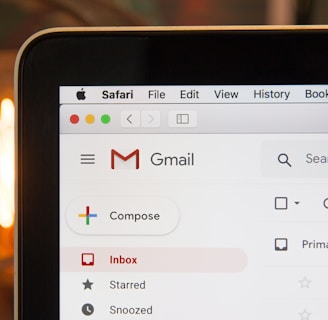Identifying and Protecting Yourself from Phishing Emails
Muhammad Ali Haider
12/29/20241 min read


Understanding Phishing Emails
Phishing emails are fraudulent communications designed to trick individuals into revealing sensitive information, such as passwords or bank details. These emails typically impersonate legitimate entities, making it crucial for recipients to identify telltale signs that can indicate potential scams. Awareness of these deceptive tactics is vital in safeguarding personal information from cybercriminals.
Red Flags to Watch For
To effectively protect yourself from phishing attempts, it's essential to be vigilant about certain red flags. One of the most common indicators is the use of impersonal greetings. Rather than addressing you by name, phishing emails often start with generic terms like 'Dear Customer.' Such impersonal communication can signify a greater threat. Additionally, an urgent request for personal information is another alarming sign. Cybercriminals create a sense of urgency to prompt immediate action, making users less likely to question the legitimacy of the request.
Be particularly cautious with unsolicited attachments or links that lead to unfamiliar websites. These are often primary tools used in phishing scams. Always verify that the sender’s email address appears legitimate; sometimes phishing emails will utilize slight variations in domain names that may go unnoticed at first glance. Do not click any dubious links before authenticating the source.
Staying Secure Online
Exercise caution when sharing personal data over the internet. Familiarize yourself with best practices in cybersecurity to enhance your defenses against phishing threats. Use two-factor authentication whenever possible, and regularly update passwords to maintain your digital security. It’s also recommended to utilize spam filters that can help automatically detect and segregate potentially harmful emails.
Raising awareness about phishing threats not only helps you but can also protect your friends and family. Engage in discussions about #cybersecurity, #phishingawareness, #emailsecurity, and #onlinesafety to underline the importance of vigilance against scams. Remember, the best defense is a proactive approach—staying informed allows you to maintain control over your sensitive information.
Prioritizing awareness of these deceptive emails is your primary shield against potential threats. By recognizing the signs of phishing emails and being cautious with your personal data, you can significantly reduce the chances of falling victim to such scams.
